How to Perform A Safety Inspection on Your Tires
December 27th, 2018
Tires are one of the most important parts of your vehicle. Poorly maintained tires can lead to dangerous or deadly accidents at worst and a negative impact on your vehicle’s handling at best. It’s important for every driver to regularly inspect their tires for proper inflation, tread depth, and sidewall condition. Performing this quick, regular check can help you stay safe on the road.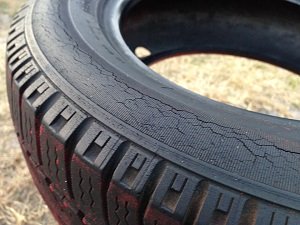

Step One: Check Your Tread Depth
This step is probably one you know. Worn out tread on your tires can prevent you from maintaining traction on the road and even keep you from being able to brake properly in an emergency. To check your tread depth, place a penny between the tread blocks of your tire. With Lincoln’s head upside-down, you shoul ...[more]
Tags:
tires
Posted in:
Tires 101
The Different Types of Engine Oil
December 13th, 2018
If you’ve ever taken a car in to be serviced, you’ve probably been asked by the mechanic, “What type of oil are you getting?” If you’re like most people, you probably just say “Whatever it takes,” or “Whatever you recommend!” Depending on your vehicle, the mechanic may recommend one of four types of motor oil: full synthetic, synthetic blend, conventional, or high mileage. Each type of oil has a specific chemical makeup and purpose it is best suited for:

Conventional Motor Oil: Conventional motor oil is the most commonly used type of motor oil. It is ideal for late-model, light-duty cars with low to average mileage and simple engine design.
Full Synthetic Motor Oil: Full synthetic motor oil differs from conve ...[more]
Tags:
oil change
Posted in:
Auto Repair 101
Why You Shouldn’t Mix Tires
November 29th, 2018
If possible, when replacing one tire, you should always try to purchase as close as possible to the existing tires on your vehicle. A matching tire will have the same tread pattern, construction, and size as your existing tires. We never recommend you use mismatched tires unless specifically recommended by the manufacturer of your vehicle.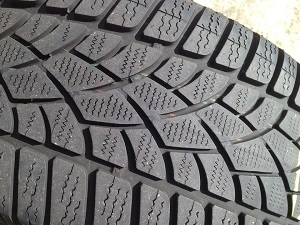

A few ways drivers will mismatch tires include: using tires with different tread patterns, using tires made by different manufacturers, using tires made for different seasons (summer vs. winter tires) and using tires with different sizes.
Every unique tire is designed for a specific job, a specific handling capability and to work together with a set of matching tires. If you use mismatched tires, your car can experience unpredi ...[more]
Posted in:
Tires 101
Something is Leaking: What Is It?
November 15th, 2018
Finding that fluid which is leaking from your car can be alarming. It is possible fluid leaking from your car could be normal, but other times leaking fluids are a symptom of a bigger problem with your vehicle. Before you panic, there are two questions you need to ask: 1) “Where is the fluid coming from?” and 2) “What does the fluid look like?”

When determining where the fluid is coming from, first find out for certain whether the fluid is even coming for your vehicle and not the vehicle parked in the space before you. If you are unsure, just get down and take a good look under the car with a flashlight or your cell phone.
Once you have determined that the leak is indeed coming from your vehicle, stick a piece of white paper ...[more]
Tags:
Auto Maintenance
Posted in:
Auto Repair 101
Why Your MPG Isn’t What It Used to Be
October 25th, 2018
These days, cars are getting better gas mileage than ever before. You don’t even have to buy a hybrid anymore to own a vehicle averaging 30 or 40 MPG. Many car owners notice that after a while, their MPG starts to wane. It’s easy to brush this off if you are still getting decent mileage, but this decrease in performance is often a symptom of bigger issues with your vehicle.
These are the most common reasons for a decrease in gas mileage: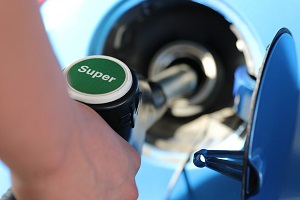
Bad Fuel Injectors: Fuel injectors are what puts fuel in your engine. If your fuel injectors are leaking or dirty, less fuel is making it to the engine, leading to a decrease in performance and gas mileage.
Using the A/C Too Often: If you live in a milder climate, consider turni ...[more]
Tags:
gas mileage
Posted in:
Auto Repair 101
Most Common Causes for a Flat Tire
October 11th, 2018
Few things are more inconvenient than a flat tire on your way to work or an important event. No one ever expects it to happen, but people get flats and find themselves stranded every day of the year for various reasons. These are a few of the top reasons people find themselves with a flat:
Extreme Temperature: If you’ve ever experienced a steep drop in temperature overnight, you may have noticed the “low pressure” light on your dash the morning after. For every 10 degrees Fahrenheit the temperature changes, your tires gain or lose 1 pound of pressure per square inch. When the temperature suddenly drops, your tires lose pressure. When the temperature escalates quickly, your tire pressure increases. Sometimes, in extreme heat, your tire pressure will expand beyond what your tires can handle, causing a failure in tire integrity. 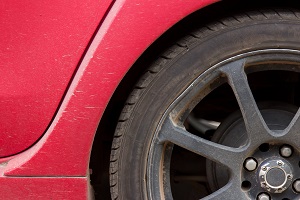 ...[more]
...[more]
 ...[more]
...[more]
Tags:
flat tires
Posted in:
Tires 101
Why Does My Tire Pressure Change by Itself?
September 27th, 2018
Fall weather in many areas can bring a large fluctuation in temperatures between daytime and nighttime. These changes in temperature can cause your tires to lose pressure as the air inside them expands and contracts. This triggers the “Check Tire Pressure” light on your dashboard. This light is known as the TPMS, or Tire-Pressure Monitoring System. For many of us, this light can be an alarming surprise. However, there is no need to panic. The light does not necessarily mean your tires are leaking. 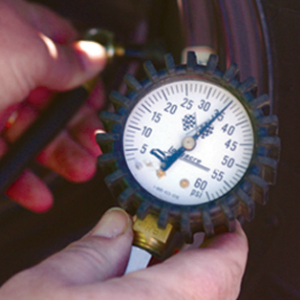

During the fall season, when daytime temperatures are much higher than at night, keeping your tire pressure consistent can be a challenge. As temperature levels change, so does the air pressure in your tires. It’s the same as when you drive at higher speeds for an extended period ...[more]
Tags:
tire inflation, Tire Maintenance
Posted in:
Tires 101
Test Drive Checklist
September 13th, 2018
In the hopes of finding the perfect used vehicle, you have researched, pulled history reports, and compared a dozen different vehicle makes and models. You have put a lot of time and effort into finding the right vehicle. Don’t let your excitement cost you down the road. A used car can save you money, but only if you buy the right one.

The right used vehicle will be one which appeals to you, has a clean history report, and doesn’t need expensive repairs. It can be difficult to tell if a vehicle is in good shape. The best thing to do, is test drive your potential new car and watch for the following signs.
Slow acceleration is one of the first things you might notice while test driving. This can be caused by several things. The mos ...[more]
Posted in:
Auto Repair 101
How to Avoid a Summer Tire Blowout
August 30th, 2018
Summer is here! With this season, comes fun in the sun, family vacations, and cookouts every weekend. Unfortunately, summer heat can also bring tire problems like blowouts. Tire blowouts are not only dangerous for you, but also for the vehicles around you. Luckily, there are several precautions you can take as a vehicle owner to help prevent your family from being stranded on the side of the highway with a tire blowout.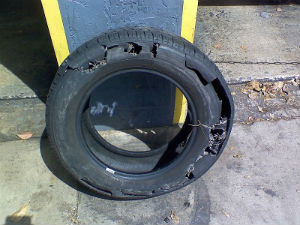

Maintain your tires’ air pressure. Your risk of a blowout is substantially higher if you’re cruising around with over or underinflated tires. This is an easy issue to prevent and just requires a little TLC. You’ll want to figure out what your tires’ optimal air pressure is, and get a tire gauge so you can check it regularly (every week or so, ideally). When you no ...[more]
Posted in:
Tires 101
Back to School Checklist
August 16th, 2018
“School days, school days. Dear old golden rule days.” Parents, teachers, and students… we know you’re excited for the start of a brand new school year! Along with buying school supplies and new clothes, car maintenance should be high on your ”back to school” to-do list. Whether you are a student driver, a teacher, or a parent dropping your kids off at school every day, a reliable car is important. We’ve gathered a few important items to jot down on your back to school checklist.
Check your vehicle’s engine oil. We’ll start off with an extremely basic item to mark off your list. Keeping your oil at the correct level is vital to your engine performance, and you’ll want to have it changed regularly. There is conflicting advice on how often you should change your engine oil. We suggest always referring to your vehicle’s owner’s manual for specific recommendations. Th ...[more]
Posted in:
Auto Repair 101
| << Previous | 456789101112 | Next >> |
Categories
Archives
2022
October (1) September (1) August (1) July (1) June (1) May (1) April (1) March (1) February (1) January (1)
2021
December (1) November (1) October (3) September (1) August (1) July (1) June (1) May (1) April (1) March (1) February (1) January (1)
2020
December (2) November (2) October (2) September (2) August (2) July (2) June (2) May (2) April (2) March (4) February (2) January (2)
2019
December (2) November (2) October (2) September (2) August (3) July (2) June (2) May (2) April (4) March (2) February (4) January (3)
2018
December (2) November (4) October (2) September (5) August (10) July (8) June (8) May (4) April (3) March (5) February (5) January (6)
2017
December (5) November (6) October (4) September (8) August (4) July (7) June (4) May (5) April (4) March (5) February (4) January (3)
2016
December (4) November (2) October (4) September (6) August (4) July (7) June (9) May (12) April (8) March (10) February (10) January (16)
2015
December (12) November (16) October (12) September (8) August (14) July (5) June (10) May (14) March (10) February (6)
2014
November (10) October (8) September (7) August (9) July (4) June (8) May (8) April (10) March (7) February (10) January (4)
2013
Tags
tires MPG gas mileage New Warehouses preventative maintenance winter auto repair winter car service tire summer tires all season tires winter tires drivers safety auto repair auto service brakes brake service flat tires car repair oil change brake fluid transmission fluid power steering fluid tire pressure Fuel Economy air conditioning car alignment Mother's Day AC Service wheel alignment tire rotation tire repair tread depth tread wear replacing tires driving safety back to school tire rotation service tire inflation Halloween vehicle lighting headlights holiday travel oil changes car air conditioning mechanic car battery snow tires high mileage car high mileage engine tire recycling tire technology tips auto facts tire facts check engine light spark plug truck tires used car buying tips performance upgrades Serpentine Belt Timing Belt Spare Tire Tire safety Parking Brake Engine Facts Auto Maintenance Tire Maintenance Traffic Laws Buy New Tires Tire Types headlight restoration Tire Recycle Auto Repair



